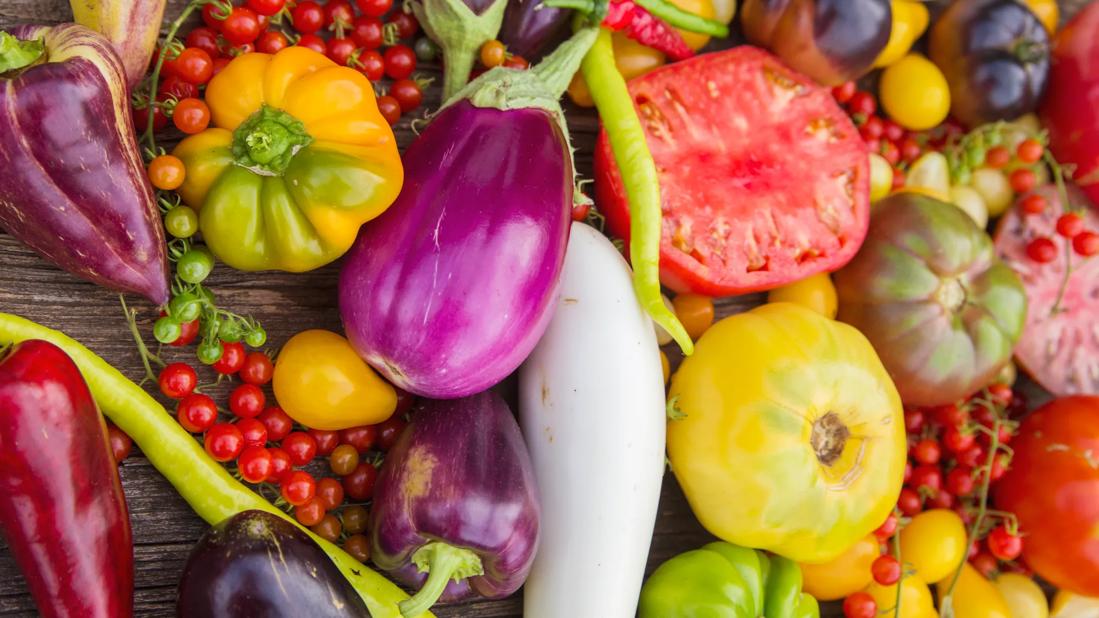Some diets shun them, but research hasn’t concluded that they’re harmful

Nightshade vegetables — think tomatoes, potatoes and eggplants — tend to get a bad reputation. Some people think they can cause inflammation, but there’s no proof that’s the case.
Advertisement
Cleveland Clinic is a non-profit academic medical center. Advertising on our site helps support our mission. We do not endorse non-Cleveland Clinic products or services. Policy
So, should you avoid nightshades or are they OK to eat? Registered dietitian Julia Zumpano, RD, LD, explains what we know about nightshades.
Nightshades are a botanical family of foods and spices that contain chemical compounds called alkaloids.
Common edible nightshades include:
These vegetables in the nightshade family (some of which are actually fruits) are highly nutritious staples in many cultures.
A single bell pepper, for example, contains well over the recommended daily amount of vitamin C, and tomatoes are a major source of the antioxidant lycopene, which some studies have associated with decreased risk of certain types of cancer.
The jury is still out.
Remember how nightshades contain small amounts of alkaloids? Alkaloids can be dangerous in large doses. In fact, there are many other plants in the nightshade family that are poisonous to humans (like, ahem, tobacco).
Even though they contain low levels of alkaloids, edible nightshades might, to some people, seem guilty by association. And some people also seem to think they promote inflammation — the root of many health problems.
Advertisement
While there haven’t been any large-scale studies demonstrating this, some diet plans exclude nightshades, claiming that people report feeling better when they don’t eat them.
But that doesn’t mean everyone should be cutting them out of their diet.
“A food sensitivity is very patient-specific and can often be a symptom of another imbalance rather than a permanent problem with that food,” states Zumpano.
While there’s no concrete evidence that nightshades are harmful, Zumpano says people with inflammatory or autoimmune conditions like arthritis, psoriasis and possibly inflammatory bowel disease may benefit from reducing how many nightshades they eat.
“If nightshades are a trigger for inflammation, it’s typically a message that there is an underlying imbalance perpetuating chronic, low levels of inflammation, and nightshades are just fuel for the fire,” she clarifies.
Also, just like any food, it’s possible to be intolerant to nightshades. If you think you have a sensitivity to nightshades, Zumpano recommends cutting them out for a few weeks while keeping a close eye on symptoms to test for tolerance.
“If avoiding nightshades improves symptoms, then your healthcare provider can determine the root cause of inflammation and likely help you improve your tolerance to nightshade foods over time,” she says.
For most people, there’s no need to avoid nightshades, as studies haven’t linked them to negative health consequences.
“These foods are incredibly healthy and offer more health benefits than costs,” Zumpano says.
If you prefer to eliminate nightshades, it’s important to make sure you’re still getting important vitamins and antioxidants from other sources.
Zumpano recommends using beets to make a “no-mato” sauce, swapping white potatoes for sweet and using Italian spices like basil, thyme and rosemary instead of cayenne or paprika.
“Nightshades are a group of foods that offer many health benefits. If you notice they increase symptoms of inflammation, cut them out of your diet for a few weeks to determine if they’re a trigger,” says Zumpano. “Then, you can add them back in slowly, one food at a time, to assess tolerance. Talk to a dietitian to help you find the eating plan that is best for you.”
Advertisement

Sign up for our Health Essentials emails for expert guidance on nutrition, fitness, sleep, skin care and more.
Learn more about our editorial process.
Advertisement

The tropical fruit is a good source of antioxidants and vitamin C

High amounts of cholesterol and saturated fat in red meat may be linked to heart disease

The leaves and pods from this tree are rich in essential nutrients

This starchy root vegetable is a staple in many global cuisines — but it has to be prepared correctly, or it can cause serious concerns

These delicate green sprouts can give you an extra dose of vitamin K and other nutrients — but they’re not safe for everyone

Edamame, lentils and chicken breast are good sources of protein

Eating this root vegetable can help support your eye, heart and brain health

The flavorful herb is full of antioxidants that may help regulate blood sugar

The tropical fruit is a good source of antioxidants and vitamin C

Most people fall asleep within 10 to 20 minutes, but if your experience is different, adjusting your sleep schedule may help

Exploring your hidden side can lead to better understanding of what makes you tick